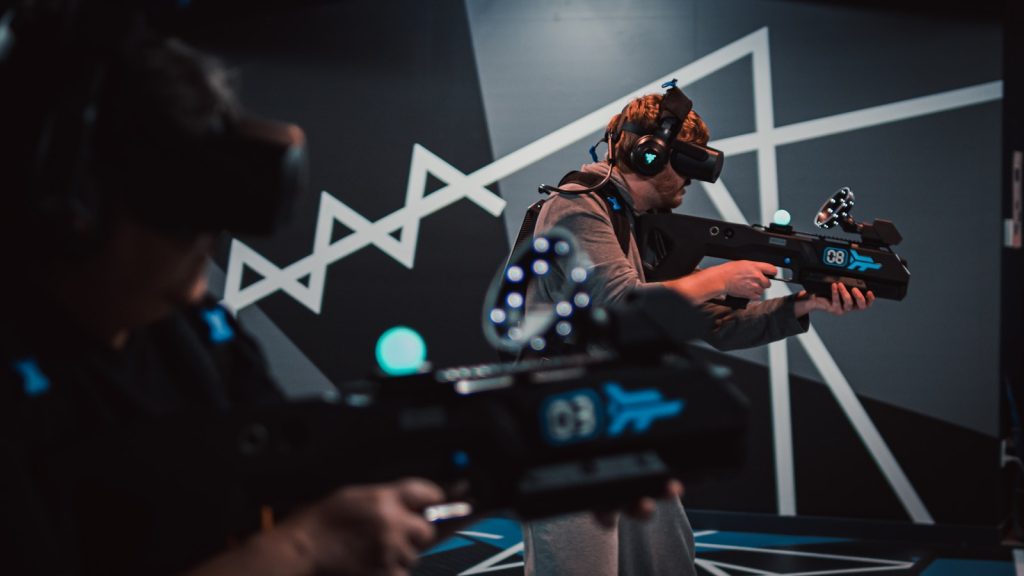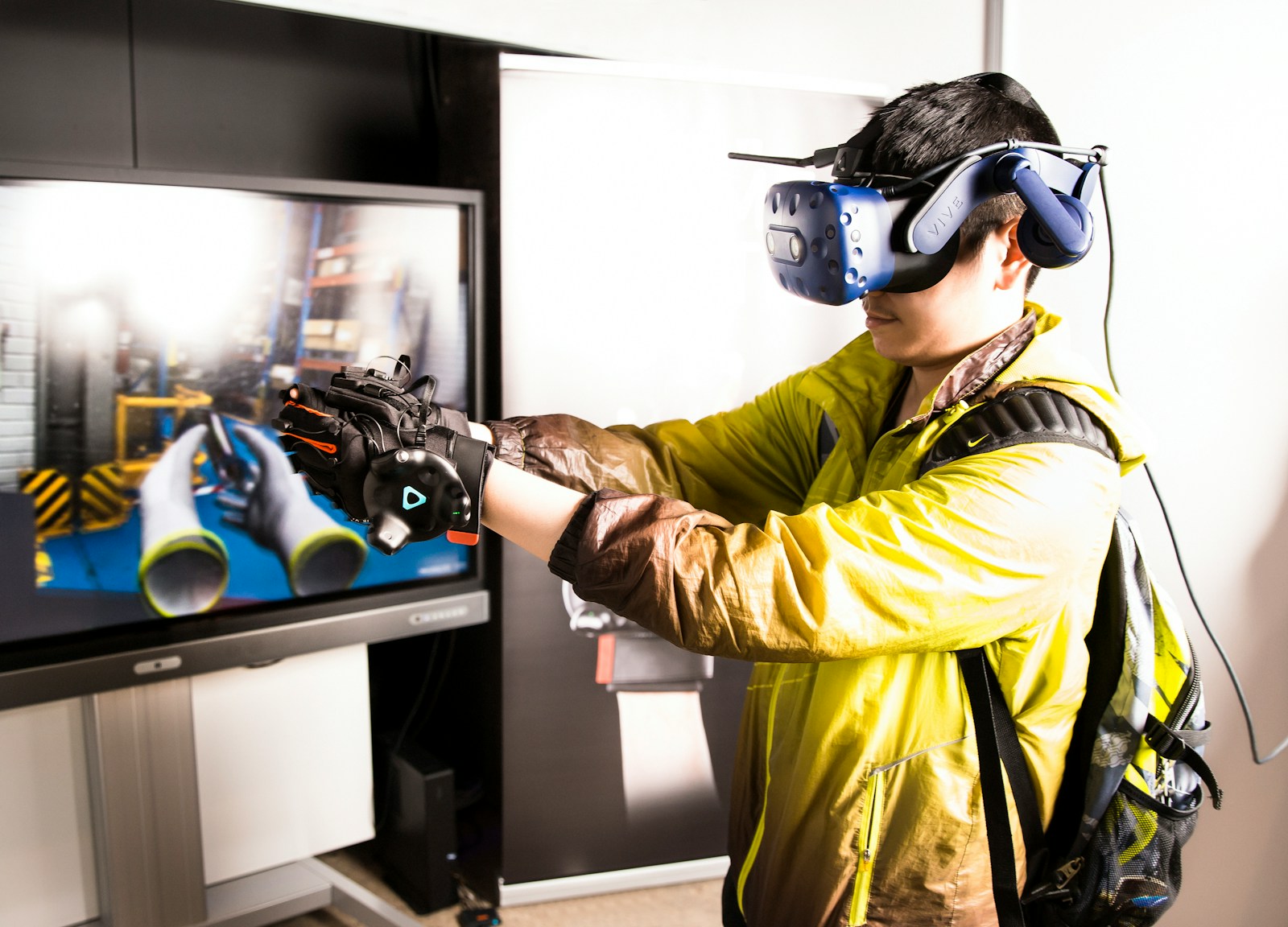The advent of virtual reality gaming has marked a significant shift in the landscape of entertainment.
With its immersive experiences and interactive gameplay, virtual reality has opened up a myriad of possibilities for players to engage with games in ways never thought possible before. The ability to step into a virtual world and be fully immersed in the game environment has revolutionized the way people experience and interact with entertainment content.
Moreover, virtual reality has not only enhanced the gaming experience but also pushed the boundaries of storytelling and world-building in games. Developers are now able to create rich, detailed worlds that players can explore and engage with on a whole new level. This innovative approach to gaming has sparked a new era of entertainment that blurs the line between the virtual and the real, offering players a truly immersive and captivating experience like never before.
The Impact of Virtual Reality on Traditional Gaming Experiences
Virtual reality (VR) has revolutionized traditional gaming experiences by immersing players in a simulated environment that feels incredibly realistic and interactive. The introduction of VR technology has elevated gaming to a whole new level, blurring the lines between the virtual world and reality. Players are no longer mere spectators but active participants in the game, with the ability to physically engage and interact with their surroundings.
Moreover, VR has redefined the way players experience storytelling in games. With immersive environments and interactive narratives, players are transported into the heart of the action, making their choices and actions feel more impactful and meaningful. Traditional gaming experiences have been reshaped by the power of VR, offering a level of engagement and immersion never before seen in the gaming industry.
The Rise of Interactive Storytelling in Virtual Reality Games
Interactive storytelling in virtual reality games has revolutionized the way players engage with narratives. By immersing users in rich and dynamic worlds, virtual reality technology allows for a deeper level of interaction and emotional connection within the story. Players are no longer passive observers but active participants, driving the plot forward through their choices and actions. This level of agency and immersion creates a more personalized and engaging storytelling experience that can be incredibly impactful and memorable for players.
Furthermore, the rise of interactive storytelling in virtual reality games has opened up new possibilities for developers to explore non-linear narratives and branching storylines. Players can make decisions that influence the direction of the story, leading to multiple outcomes and endings based on their choices. This element of player agency not only enhances replay value but also encourages critical thinking and problem-solving skills as players navigate through complex moral dilemmas and narrative twists. As virtual reality technology continues to advance, the potential for even more complex and interactive storytelling experiences in gaming is truly exciting.
The Evolution of Virtual Reality Technology in Entertainment
Virtual reality technology has made significant strides in the realm of entertainment over the years. From its humble beginnings to the sophisticated systems we have today, the evolution of virtual reality has undoubtedly transformed the way we experience various forms of media. The early iterations of virtual reality technology were clunky and limited in their capabilities, often leaving users feeling disconnected from the virtual world they were meant to immerse themselves in.
As technology advanced, so did the virtual reality experience. Innovations in display resolution, motion tracking, and interactive controllers have all played a role in enhancing the immersion and realism of virtual reality entertainment. Today, virtual reality systems boast high-definition displays, responsive tracking sensors, and intuitive controllers that allow users to truly feel like they are part of the virtual environment. The evolution of virtual reality technology has opened up endless possibilities for creativity and innovation in the entertainment industry, paving the way for new and exciting experiences for audiences around the globe.
Challenges and Opportunities in Virtual Reality Gaming Development
Developing virtual reality games presents both challenges and opportunities for creators in the gaming industry. One major challenge is the high cost associated with creating immersive VR experiences. From hardware requirements to software development, the investment needed to produce top-quality VR games can be significant. This financial barrier can make it difficult for smaller studios to compete with larger companies that have greater resources at their disposal.
On the other hand, the evolving technology of virtual reality gaming opens up a world of opportunities for developers. With the ability to create truly immersive and interactive experiences, VR games have the potential to revolutionize the way players engage with digital entertainment. This new medium allows for innovative storytelling techniques, realistic simulations, and unique gameplay mechanics that can captivate audiences in ways never seen before in traditional gaming. As developers continue to push the boundaries of what is possible in VR, the opportunities for creating groundbreaking gaming experiences are virtually limitless.

Exploring the Potential of Virtual Reality for Social Interaction in Gaming
Virtual reality (VR) has revolutionized the gaming industry by offering a new level of immersive experiences, particularly in the realm of social interaction. Through VR technology, gamers have the opportunity to engage in multiplayer games where they can interact with others in a more realistic and meaningful way. This allows for the cultivation of genuine social connections, fostering camaraderie and teamwork among players.
By leveraging the power of virtual reality for social interaction in gaming, developers are able to create environments that simulate real-world interactions, enhancing the overall gaming experience. Players can communicate with each other through voice chat, gestures, and even body language, adding a layer of authenticity that traditional gaming platforms lack. This not only enriches the gaming experience but also opens up new possibilities for cooperative gameplay and social bonding among players.
The Integration of Virtual Reality in Live Events and Experiences
Virtual Reality (VR) technology has transcended the realms of gaming and entertainment, making its mark in live events and experiences. From concerts to sporting events, VR integration has revolutionized the way audiences interact and engage with the content. The immersive nature of VR allows participants to feel as though they are part of the event itself, breaking down physical barriers and enhancing overall user experience.
The adoption of VR in live events offers event organizers and sponsors unique opportunities to reach wider audiences and create unforgettable moments. By providing virtual attendees with a sense of presence and interactivity, VR enhances the overall engagement and enjoyment levels, making events more memorable and impactful. As technology continues to advance, the integration of VR in live events and experiences is poised to shape the future of how we attend and participate in various forms of entertainment.
Virtual Reality Gaming: The Future of Esports and Competitive Gaming
With the rapid advancements in virtual reality technology, the future of esports and competitive gaming is poised to be revolutionized. Virtual reality gaming offers a level of immersion and interactivity that traditional gaming platforms simply cannot match. Players are transported into virtual worlds where they can fully engage with the game environment, leading to a more intense and engaging gaming experience.
Furthermore, virtual reality has the potential to create a more level playing field in esports by placing all players on equal footing in terms of physical abilities. In traditional esports, factors such as reaction time and manual dexterity can give certain players an advantage. However, in virtual reality gaming, success is often determined by strategy, adaptability, and quick thinking rather than pure physical prowess. This shift in focus could open up new opportunities for a wider range of individuals to excel in competitive gaming, leveling the playing field and creating a more inclusive esports environment.
The Role of Virtual Reality in Immersive Education and Training Programs
Virtual Reality (VR) has emerged as a powerful tool in immersive education and training programs, revolutionizing the way individuals learn and develop practical skills. By providing a simulated environment that mimics real-life scenarios, VR enables users to engage in hands-on experiences that enhance their understanding and retention of information. This interactive approach to learning not only improves knowledge acquisition but also cultivates problem-solving skills and critical thinking abilities in a dynamic and engaging manner.
In the realm of professional development, VR technology offers organizations a cost-effective and efficient way to train employees in various industries. From simulated workplace environments to virtual team-building exercises, VR allows individuals to practice and refine their skills in a safe and controlled setting. By incorporating VR into training programs, companies can enhance employee performance, reduce training costs, and streamline the onboarding process. Ultimately, the immersive nature of VR experiences empowers individuals to acquire new skills and knowledge in a highly engaging and impactful manner.
The Ethical Considerations of Virtual Reality Gaming and Interactive Experiences
In the realm of virtual reality gaming and interactive experiences, ethical considerations play a crucial role in shaping the impact of these technologies on individuals and society. As the boundaries between the virtual world and reality blur, questions arise regarding the moral implications of player actions and the content portrayed in these virtual environments. Developers must navigate the fine line between creative expression and potential harm, ensuring that their creations uphold ethical standards and do not perpetuate harmful stereotypes or behaviors.
Furthermore, the immersive nature of virtual reality experiences raises concerns about consent and player autonomy. Issues surrounding data privacy, psychological well-being, and addiction must be carefully addressed to safeguard the welfare of users. It is imperative for the industry to prioritize transparency, user safety, and responsible design practices to foster a positive and ethical environment for virtual reality gaming and interactive storytelling.
